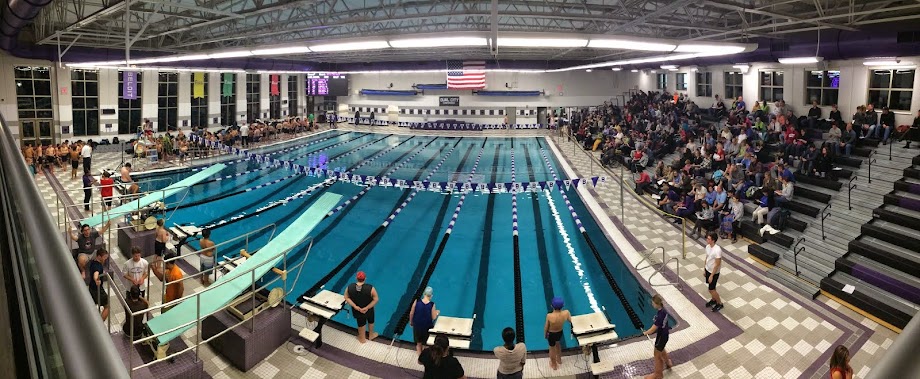At some point your swim coach has told you to focus on the process, or totrust the process.
But have you ever stopped to listen?
Or thought a little more deeply about how focusing on the process instead of results can help you be a significantly better swimmer?
(Not only that, but also decreases stress, increases enjoyment, and makes you 9% less likely to get kicked in the face by wayward breaststrokers.)
I understand the resistance to this concept…
By focusing on the process we aren’t obsessing over our goals, and if we aren’t obsessing over our goals, than obviously we don’t want it enough, and as a result we won’t achieve them.
But here’s the kicker…
We don’t achieve our goals by thinking and wishing non-stop for them to happen.
We make our goals happen by focusing on the process.
I am going to give you two quick examples of what I mean.
#1. Focus on the process when building your goals.
I’ve talked a lot about goals and goal setting through this newsletter. From tips and strategies to setting better goals, and what you need to do to stay on top of them.
At the top of that list is building a process to get there.
In other words, going backwards from your goal, what do you need to do in training each day to get where you want to go?
Not merely the things you need to accomplish to get to your ultimate goal, but what you are going to do each day.
This is your process.
This is your preparation.
By focusing on what you can do to get faster you give yourself control (which inspires confidence, decreases anxiety, and even makes the whole training thingy more enjoyable).
A process also gives you a concrete set of things to work on at the pool each day.
- 5 perfect dolphin kicks off every very wall.
- An effort rating that is at least 8.5/10
Etc.
Your process includes things that you can control.
#2 Focus on the process when you are neck deep in a tough workout and set.
Swimmers overwhelmingly pull their punches in training.
It’s a common sight, and something coaches tell me often…
Because they are afraid of the pain…afraid of “dying”…afraid of having nothing left for later in the workout…afraid of how much more of the practice still remains to be completed… They never really go through a full swim practice at full effort.
This leaves a lot of wasted potential on the table.
And it doesn’t prepare you for the challenge of competition.
You are essentially training yourself to give most of your best, but never entirely.
This pain avoidance is 100% natural and instinctive.
And unless I’m paying to attention to my own process, I am just as guilty of it in training.
Last week I was at the pool doing a 3,000m fartlek kick set (Fartlek—fun to say, and good for you too!)…I was alternating doing 125m cruise and 75m at an all-out pace…
By the time I got to about halfway my legs were slowing considerably, going full Jello-mode by the end of each high intensity rep.
During one rep in particular I thought about how I still had like 9 more hard efforts to go, plus another 2k to swim after that.
My legs instantly slowed down. Even though it was done consciously, the thought of how much more workout was still to come ended up causing me to slow down.
Our brains, being those wonderfully complicated little things that they are, thought it was doing me a favor by yanking the parking brake.
“You still have so much workout left, let me help you out by slowing you down,” it was whispering to me.
The solution?
How do we override this pain-avoidance mechanism?
I switched to a process-based focus by focusing on the rep I was doing and that rep alone, and focusing on a series of cues to keep my legs moving at a fast(ish) pace:
Kick in a tight box… Keep your ankles loose and snap them! Kick all the way to the wall!
Anytime my mind drifted off to how many more reps I had, or how much workout I had left, I returned my focus to those process-based cues.
As a result, I was able to complete the set at a higher level than I would have if I continued focusing on the outcome and focusing on what was next.
Simply put, a process-focused approach allowed me to be more present in my swimming, giving me a better training session.
Focus-based thinking and focus will help you swim faster. More often.
Often I get emails from young swimmers with big goals.
From going to the Olympics…
Breaking a best time…
To getting back into shape.
And invariably I like to ask…
What’s your process look like?
See you in the water,
Olivier
P.S. Getting better at mastering the process is just one of the things that tracking your workouts can really help you with.
When you see how long it takes to make progress, when you have an accountability tool to help you stay on track, and when you have something that gives you the little jolts of motivation that come with nailing your process on a daily basis, then your swimming will take off to a whole new level.

No comments:
Post a Comment
Note: Only a member of this blog may post a comment.